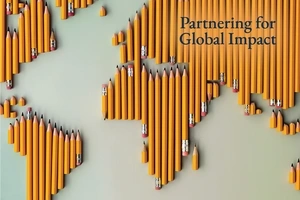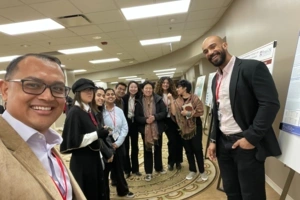Faculty Expert
Children in Ghana who were poorer, more food insecure, and went to public schools had fewer opportunities for remote learning during the pandemic, and those learning opportunities were of lower quality. In a newly published study, Penn GSE’s Sharon Wolf, along with her co-authors, analyzes data gathered from phone-based surveys of children, their primary caregiver, and teachers throughout the pandemic about their experiences with remote schooling. And while the data is specific to Ghana, their findings offer opportunities for reflection in many countries as students readjust to learning in person.

The study, Learning in the Time of a Pandemic and Implications for Returning to School: Effects of COVID-19 in Ghana, was published by Wolf along with co-authors Elisabetta Aurino (Imperial College London), Noelle Suntheimer (a University of Pennsylvania Graduate School of Education doctoral student in Interdisciplinary Studies in Human Development), Esinam Avornyo (University of Cape Coast), and Edward Tsinigo (Innovations for Poverty Action). It is one of the first studies to document pandemic learning loss within a particular context and to such a level of detail; the researchers were able to gather a breadth of data due to close connections to students, caregivers, and teachers that were already in place for another ongoing study. “We haven’t seen this kind of systematic documentation within countries,” says Sharon Wolf, explaining that most currently available data takes more of a bird’s eye view. However, with children back in classrooms, knowing how the pandemic impacted learning can provide valuable lessons for policymakers and teachers alike. Wolf and her peers found that controlling for children’s learning levels before the pandemic, low-socioeconomic status and food insecure children performed significantly worse than their peers on academic assessments. “We are seeing the real consequences of these lost learning opportunities,” reflects Wolf.
And those learning opportunities aren’t just limited to academics. Wolf points out the important social-emotional skills that students also often learn in school, like walking in a line and other norms, that kids lost out on. “Teachers are dealing with bigger variation within the classrooms, teaching kids who had different experiences while schools were closed,” Wolf explains. “It’s important to be aware that this is going to happen, and to help teachers be ready for it.” With growing learning gaps in the classroom, Wolf and her co-authors suggest targeted instruction as one way of addressing these gaps. While it’s less common in the United States, targeted instruction allows teachers to focus on teaching children who are at the same learning level across grades for part of the school day. This is one approach that had already been introduced in Ghana before the pandemic that is now being expanded. “This is a really useful approach in contexts where there are a wide range of skills in a class,” says Wolf. Implementing targeted instruction requires not only supporting teachers but also creating policies that support a shift in traditional learning methods, such as restructuring the school day.
The study also found that children’s home learning environments were significant. “We try to ask schools to do so much and address so many inequalities in our society; this is true in Ghana, and it’s true in the US,” says Wolf. “When schools were closed it became very clear how influential the home can be.” Finding more ways to help parents in supporting their child’s learning and education is key, she says, noting that there are both interesting and cheap ways to do this, like using text message prompts. Food insecurity also rose during the pandemic, directly impacting learning, pointing to a need to continue to meet basic needs as part of any education approach.
“Who did and didn’t come back to school? For example, in Ghana it’s important to look at girls, who are more likely to marry early and drop out of school. Without a concerted effort this will affect a whole generation of girls,” Wolf says, pointing to some of the study’s Ghana-specific findings. “While these findings are specific to Ghana, we believe they can really help other countries think about places where they should start to look for pandemic-related learning impacts. For example, when you look at who didn’t come back to school, you can start thinking about targeting approaches to reach families and children that most need it.”
To access the full working paper, published by Penn GSE’s Consortium for Policy Research in Education (CPRE), head here.







